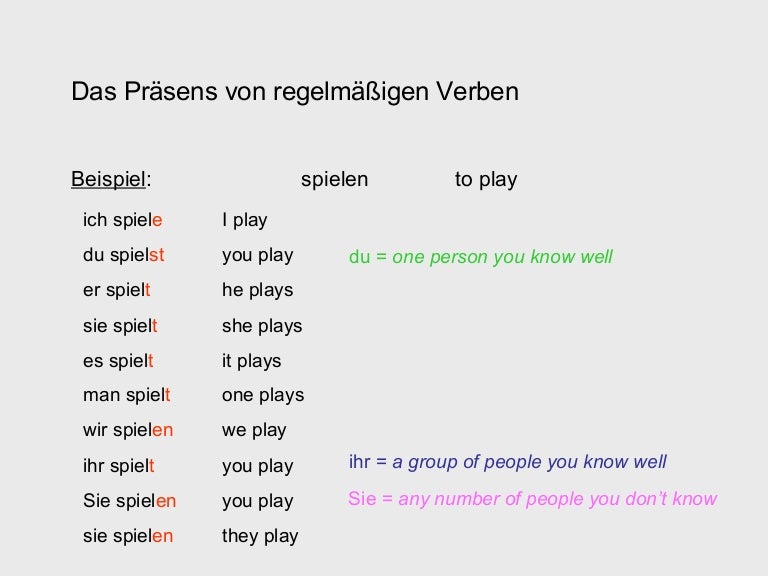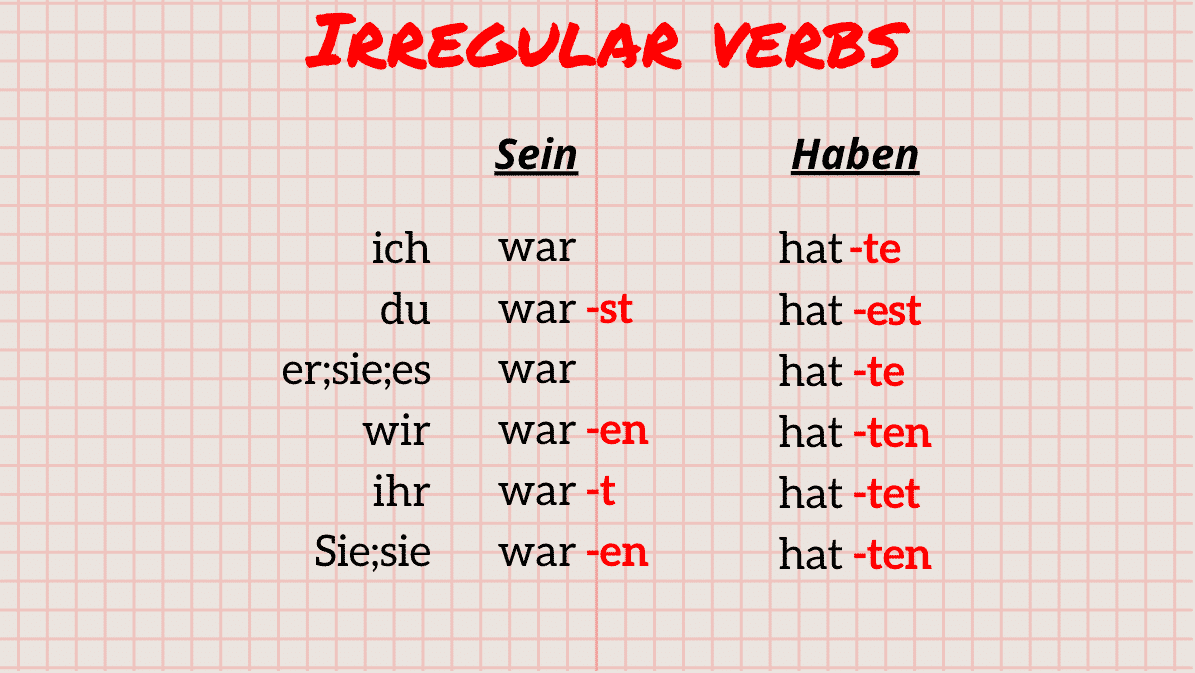

Please check the details on my Patreon page.GERMAN PERFECT TENSE REGULAR VERBS focusing on 25 high-frequency regular German verbs in the perfect tense. My supporters can access audio files for many lessons on my Patreon page and lots of mini lessons and quiz.Īlso just added two new tiers. I REALLY appreciate your support! サポートありがとう! マギー先生より = Maggie Sensei yori = From Maggie Sensei = That watch cost you 50,000 yen? That’s expensive! = Dame jan, chanto kanojo ni ayamaranakucha. = Mom, we are already out of mayo, you know. = Chotto! Sore, watashi no aisukuriimu jan. You attach か ( = ka) at the end to emphasize your feelings.

= Why don’t you ask Maggie Sensei if you don’t understand some Japanese words.ģ) to make your point, express one’s frustration, complain, talk back to someone = Nihongo ga wakanarankattara Maggie Sensei ni kikeba iijan ka. = If you are tired, why don’t you go to bed already. (You can also say 再起動すれば ( = saikidou sureba)) (You can also say 勉強すれば = benkyou sureba) = Oh, it’s your birthday today, isn’t it? Sorry, I forgot about it. = Are? Kyou, tanjoubi jan! Gomen, wasureteta! = Hey, you told me that you were going out on a date with him, the other day. = Nee nee, kono aida, kare to deeto ni ikutte itteta jan. = Today’s boxed lunch looks good, doesn’t it? If you want to express surprised feelings or emphasize your feelings, attach か ( = ka) to the end. If you need agreement from a listener, attach ね ( = ne)/ ねえ ( = nee) But since it is very casual, be careful who you use it with.Īnd of course, all my example sentences today are very casual.ġ) to give someone one’s feedback, express one’s opinion, feelings. Please check my じゃない ( = janai) lesson for more detailsįor example, when you see something cute, you say:īoth men and women use じゃん ( = jan). The original form じゃない ( = janai) can be used for question or negate what comes before but you use じゃん ( = jan) in an affirmative sentence / tag question to give a feedback, emotion or make one’s point. * きれいじゃなかった = kireijanakatta = was not beautiful * 美味しくなかった = oishikunakatta = was not delicious You can also use potential form / passive form, and with any auxiliary verbs みたい ( = mitai), らしい ( = rashii), かもしれない ( = kamo shirenai), etc. * やっていない ( = yatte inai jan) not doing / haven’t done * やっている ( = yatte iru) to be doing/ have been doing * やらない ( = yaranai) not to do, not going to do / won’t do * やる ( = yaru) to do, going to do / will do * 犬じゃなかった ( = inu ja nakatta) was not a dog じゃん ( = jan ) is a casual contraction of じゃない ( = janai)
#German verb endings tv#
However, it is a very common casual suffix among young people so you may have come across it in daily conversation, TV dramas or in anime. Kantou area people use じゃん ( = jan) more than people from the Kansai area, so it is considered to be a part of that dialect.
#German verb endings how to#
I will teach you how to use a casual suffix じゃん ( = jan) which you probably won’t see in your Japanese textbook or JLPT test. Maggie Sensei asked me to make this lesson for one of her Patron family members. 面白い じゃん ( = Omoshiroi jan) It’s fun, isn’t it? I love licking bare feet and stealing socks. Hi everyone! I’m Noodle, your guest teacher for today.


 0 kommentar(er)
0 kommentar(er)
